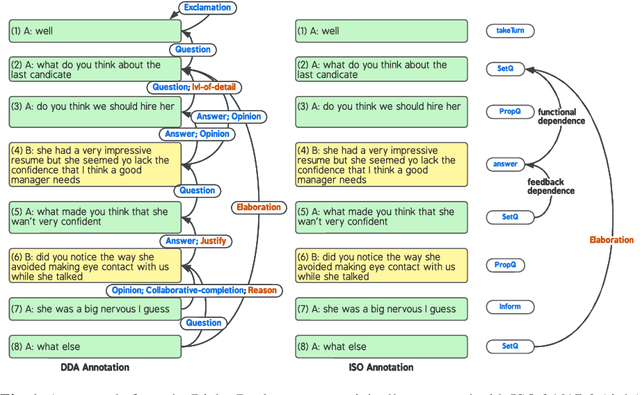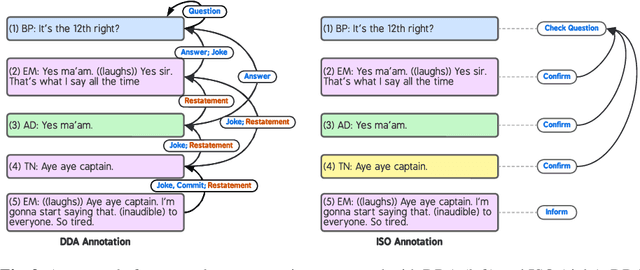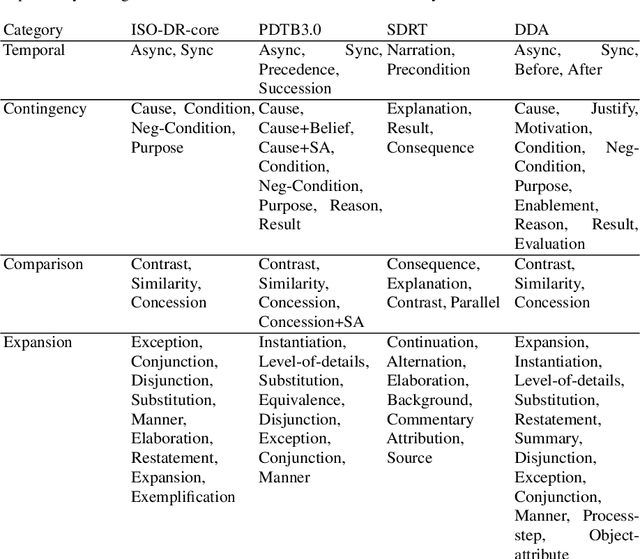Marie Grace
Dependency Dialogue Acts -- Annotation Scheme and Case Study
Feb 25, 2023



Abstract:In this paper, we introduce Dependency Dialogue Acts (DDA), a novel framework for capturing the structure of speaker-intentions in multi-party dialogues. DDA combines and adapts features from existing dialogue annotation frameworks, and emphasizes the multi-relational response structure of dialogues in addition to the dialogue acts and rhetorical relations. It represents the functional, discourse, and response structure in multi-party multi-threaded conversations. A few key features distinguish DDA from existing dialogue annotation frameworks such as SWBD-DAMSL and the ISO 24617-2 standard. First, DDA prioritizes the relational structure of the dialogue units and the dialog context, annotating both dialog acts and rhetorical relations as response relations to particular utterances. Second, DDA embraces overloading in dialogues, encouraging annotators to specify multiple response relations and dialog acts for each dialog unit. Lastly, DDA places an emphasis on adequately capturing how a speaker is using the full dialog context to plan and organize their speech. With these features, DDA is highly expressive and recall-oriented with regard to conversation dynamics between multiple speakers. In what follows, we present the DDA annotation framework and case studies annotating DDA structures in multi-party, multi-threaded conversations.
* The 13th International Workshop on Spoken Dialogue Systems Technology
System Demo: Tool and Infrastructure for Offensive Language Error Analysis (OLEA) in English
Oct 28, 2022



Abstract:The automatic detection of offensive language is a pressing societal need. Many systems perform well on explicit offensive language but struggle to detect more complex, nuanced, or implicit cases of offensive and hateful language. OLEA is an open-source Python library that provides easy-to-use tools for error analysis in the context of detecting offensive language in English. OLEA also provides an infrastructure for re-distribution of new datasets and analysis methods requiring very little coding.
 Add to Chrome
Add to Chrome Add to Firefox
Add to Firefox Add to Edge
Add to Edge